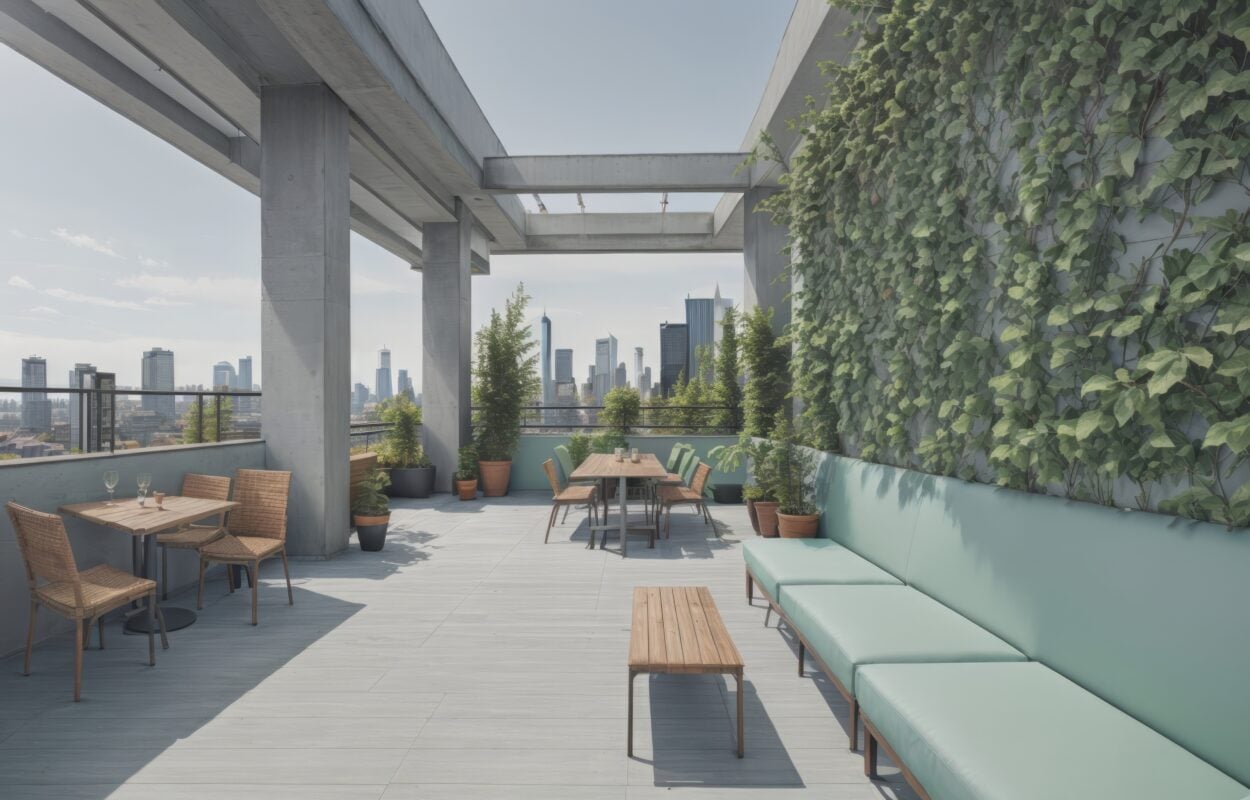At MyDek, we are committed to reducing the impact on our planet. All our aluminium decking has always been 100% recyclable, and now we are taking it further. With the race towards net zero gaining momentum in the UK, we understand that our customers are looking for solutions that are not only recyclable but also have low carbon footprint impact. This is why we are switching to green aluminium by the end of 2023. In this blog post, we look at Green Aluminium, the different types, and our sustainability plans at MyDek.
What is Green Aluminium?
“Green aluminium” refers to the concept of producing aluminium in an environmentally friendly manner, with a reduced carbon footprint that minimises the impact on the environment. This can be achieved by recycling aluminium or using low-carbon aluminium.
Aluminium is a widely used metal with diverse applications in industries such as construction, transportation, packaging, and electronics. However, traditional aluminium production methods are energy-intensive and generate significant greenhouse gas emissions, particularly carbon dioxide (CO2). The primary method for producing aluminium is the Hall-Héroult process, which involves the electrolysis of alumina (aluminium oxide) in a molten cryolite electrolyte, requiring substantial amounts of electricity.
To achieve green aluminium, several approaches have been developed to reduce the environmental impact of aluminium production.
Now let’s look at the two types of green aluminium below:
Recycled Aluminium:
Recycled aluminium, also known as secondary aluminium, refers to aluminium that is derived from post-consumer or post-industrial scrap rather than primary aluminium ore (bauxite). The recycling process involves collecting aluminium scrap, melting it down, and reusing it to produce new aluminium products. Here are key points about recycled aluminium:
- Environmental Benefits: Recycling aluminium requires significantly less energy (up to 95% less) compared to primary aluminium production. It also reduces greenhouse gas emissions and saves valuable natural resources.
- Circular Economy: Incorporating recycled aluminium into the production cycle helps close the material loop, promoting a circular economy by reducing waste generation and conserving resources. Aluminium is infinitely recyclable making it a great material to use for a positive contribution to carbon reduction.
- Energy Savings: Recycling aluminium saves a substantial amount of energy compared to primary production. This is because the energy-intensive processes involved in refining bauxite into aluminium are bypassed when using recycled aluminium.
Low-Carbon Aluminium:
Low-carbon aluminium, also referred to as low-carbon footprint aluminium or low-carbon primary aluminium, focuses on reducing the carbon emissions associated with the primary aluminium production process. Various strategies can be employed to achieve low-carbon aluminium:
- Renewable Energy: Shifting to renewable energy sources, such as hydro power, wind power, or solar power, for electricity generation in aluminium smelting reduces carbon emissions. Renewable energy sources are considered low-carbon alternatives to fossil fuel-based electricity.
- Carbon Capture and Storage (CCS): Implementing CCS technologies in aluminium smelting facilities captures and stores carbon dioxide (CO2) emissions, preventing them from being released into the atmosphere. This significantly reduces the carbon footprint of the aluminium production process.
- Energy Efficiency: Improving the overall energy efficiency of aluminium smelting processes can help reduce energy consumption and associated emissions. Innovations in cell designs, process optimisation, and energy recovery techniques contribute to lowering the carbon intensity of aluminium production.
Green Aluminium at MyDek
To support our drive to contribute to a healthier planet and reduce our carbon footprint, we are committed to using green aluminium to produce the majority of our aluminium decking products by the end of 2023. We currently use recycled aluminium billet for around 70% of our decking products. However, it is important to acknowledge that not all billet producers can currently meet this requirement. Considering the complexities of global supply chains, we understand the need to remain flexible and adaptable in our approach. In addition to the use “green” aluminium billet, we are working hard with our production partners to reduce emissions in the extrusion process through the introduction of on-site solar PV installations and smelting plants to recycle post-production waste on site. These significant investments are key ways in which, together with our supply chain, we can reduce our impact on the environment and continue to deliver products to the market that are Safe, Smart and Sustainable.
“Our goal is to contribute to creating a sustainable future for our employees, customers, community, and future generations, by actively taking steps that help reduce our carbon footprint and minimise our environmental impact.” added Tristan Parson, CEO of MyDek

